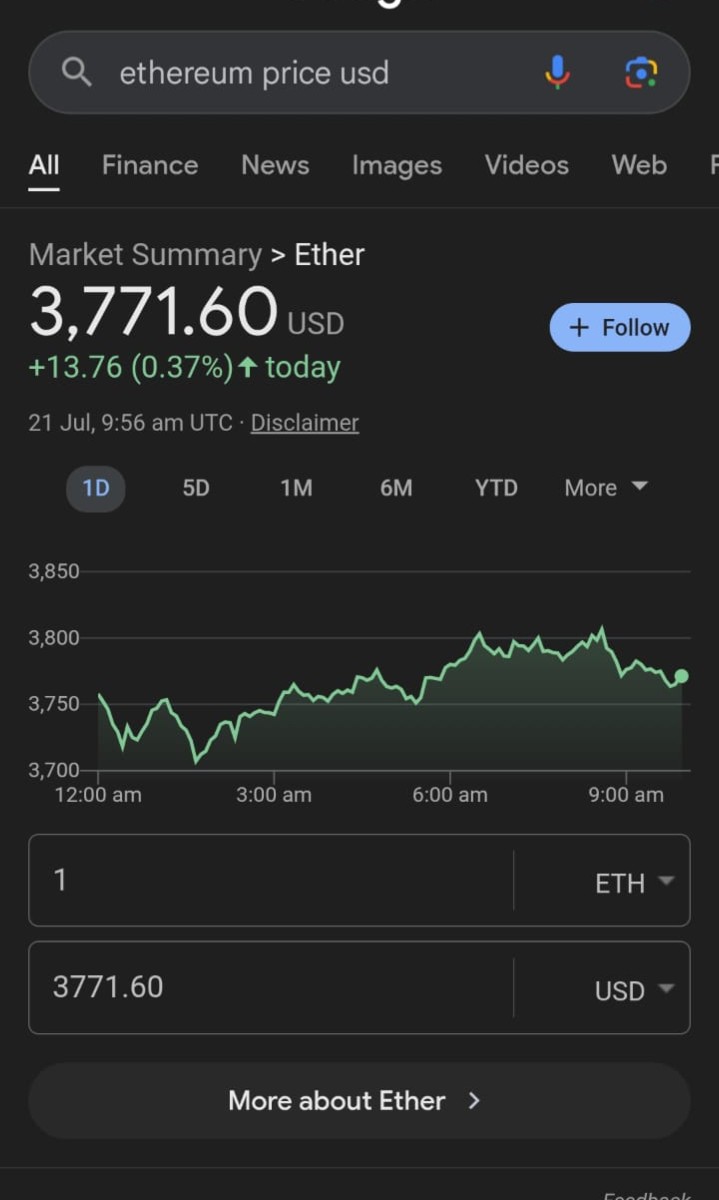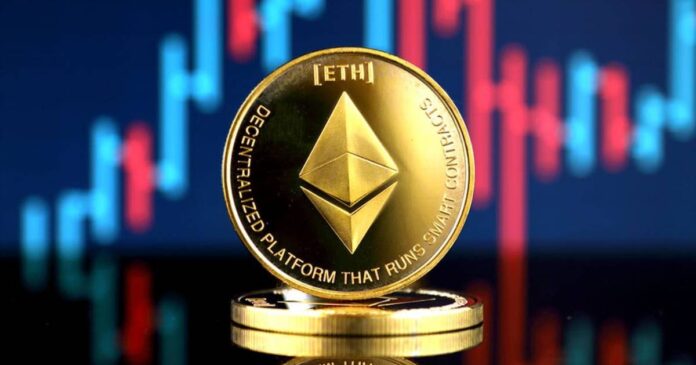Once known as a little brother of Bitcoin, Ethereum at first wasn’t taken seriously by the majority of investors, as it looked difficult for them to understand. Today, the tables have turned, and the Ethereum coin has carved out a sizeable share of the crypto market due to innovations like DeFi (decentralised finance) and NFT (non-fungible token). But such a drastic improvement? How so?
What is Ethereum coin, and why are investors considering it the next big rival to Bitcoin?
What is Ethereum Coin?
The Ethereum coin, AKA Ether (ETH), is the native cryptocurrency of the Ethereum network. It is a decentralised, blockchain-based platform that was launched in 2015. Ethereum is more than just a digital currency, as it also fuels the decentralised applications and smart contracts built on the Ethereum platform. Think of it as the fuel that powers the “world computer” that is Ethereum.
It’s a platform that allows developers to build and run applications, called dApps, that don’t rely on any central authority.
In simpler terms, Ether is to Ethereum what petrol is to a car. You can invest in it, trade it, or use it to run programs on the Ethereum network.
A Quick Look Back at The History of Ethereum
Ethereum was created by Vitalik Buterin, who published its whitepaper in 2013. The project was crowdfunded in 2014 and officially launched in July 2015. What set Ethereum apart from Bitcoin right from the beginning was its ambition: not just to move money, but to allow anyone to build decentralised apps using smart contracts.
Smart contracts are self-executing lines of code written in blockchain that carry out certain instructions once they are met. No banks, lawyers, or middlemen required. These smart contracts are what power decentralised applications or “dApps” on Ethereum.
But wait, you might be thinking that Bitcoin does the same (almost), so how is this any different? Here is what sets Ethereum and Bitcoin apart.
- Bitcoin is primarily a digital store of value. It is a kind of “Internet gold” that’s great for holding and transferring value.
- Ethereum is a programmable blockchain. It lets developers create applications that can do all sorts of things: lending money, trading assets, creating NFTs, or even running entire games.
- Bitcoin is relatively simple. Ethereum is flexible, open-ended, and designed for innovation.
Now, don’t get me wrong, Bitcoin is also playing a huge role in worldwide expansion towards decentralised finance and is still very valuable in its own way. Ethereum is just bringing something new to the table, along with what Bitcoin already offers.
What are Ethereum Gas Fees and Why is it So Expensive?
Gas fees are transaction fees paid by users to record their transactions on a blockchain. The fees are used as rewards to validators, geographically distributed computer users, for verifying transactions and keeping the blockchain network running properly.
Gas fees also offer an extra layer of security to blockchains by making it costly for bad actors to interact with the network and attempt to disrupt it.
Gas fees tend to be small fractions of cryptocurrencies native to a blockchain and are often not set in stone but depend on how much a particular blockchain is being used at any one time.
Users can pay higher gas fees if they want a transaction confirmed more quickly, as these higher fees incentivise validators to process their transactions first. Likewise, users who pay lower gas fees may see their transactions stuck in a queue because validators are less motivated to confirm them in a timely manner.
These gas fees tend to be more expensive on Ethereum than on other blockchains because of the sheer number of users it attracts, which makes the network congested.
Every application and user on Ethereum is competing for a limited amount of space.
The very large volume of transactions that pass through the thousands of decentralised apps, DeFi protocols, and NFT platforms built on the Ethereum blockchain leads to spikes in gas prices.
Since gas fees are priced in ETH, they also naturally go up, or down, depending on the market value of Ethereum.
During periods of elevated blockchain activity, for example, when a new DeFi protocol launches, or a popular set of NFTs are created for sale, the average price for gas fees can climb to very high levels indeed.

The Role of Smart Contracts and Ethereum 2.0
One of Ethereum’s most revolutionary features is the smart contract. These are bits of code that execute automatically when certain conditions are met. For example, a smart contract could automatically release payment when a product is delivered.
All of this runs on the Ethereum Virtual Machine (EVM), which is a global and decentralised computer that ensures these contracts execute securely across thousands of nodes worldwide.
This combination of smart contracts and EVM is what makes Ethereum the foundation for much of today’s DeFi (decentralised finance) and NFT (non-fungible token) activity.
In September 2022, Ethereum underwent a major upgrade known as The Merge, transitioning from a Proof-of-Work (PoW) system (like Bitcoin) to a much more energy-efficient Proof-of-Stake (PoS) system. Here is why this can be a very important upgrade:
- Ethereum’s energy consumption dropped by over 99%, addressing one of the major criticisms of crypto.
- The network is now better prepared to handle future upgrades, like sharding, which will significantly increase its capacity and lower fees.
- Users can now stake their ETH to help secure the network and earn rewards, rather than relying on miners.
- Ethereum’s energy consumption went down by a total of 99 percent, which has made it a lot more sustainable and less energy extensive unlike what it was before.
So, Is Ethereum Really the Next Big Deal?
By all accounts, it already is.
Ethereum is the backbone of the modern crypto ecosystem. It supports the majority of DeFi protocols, NFT platforms, and decentralised applications. With its transition to Proof of Stake, Ethereum has solved some of its biggest issues, energy waste and scalability, making it even more sustainable and future-ready.
Whether you’re an investor, a developer, or just someone trying to understand the next phase of the internet, Ethereum is a project you can’t ignore.
Stay tuned to Brandsynario for the latest news and updates







































